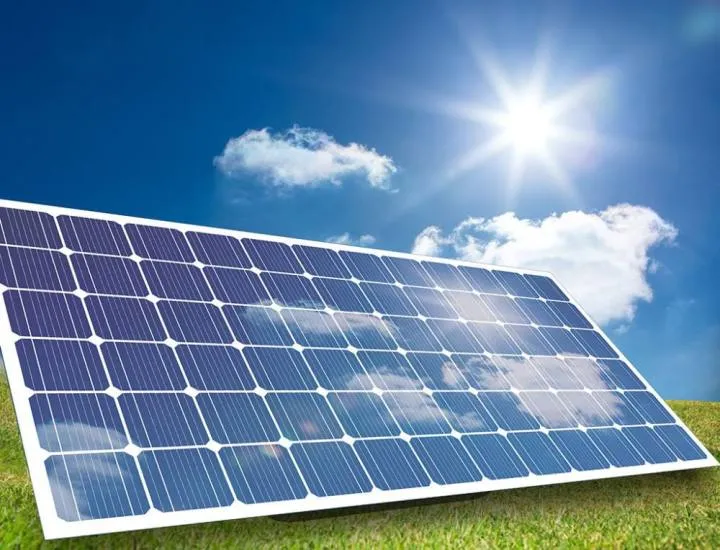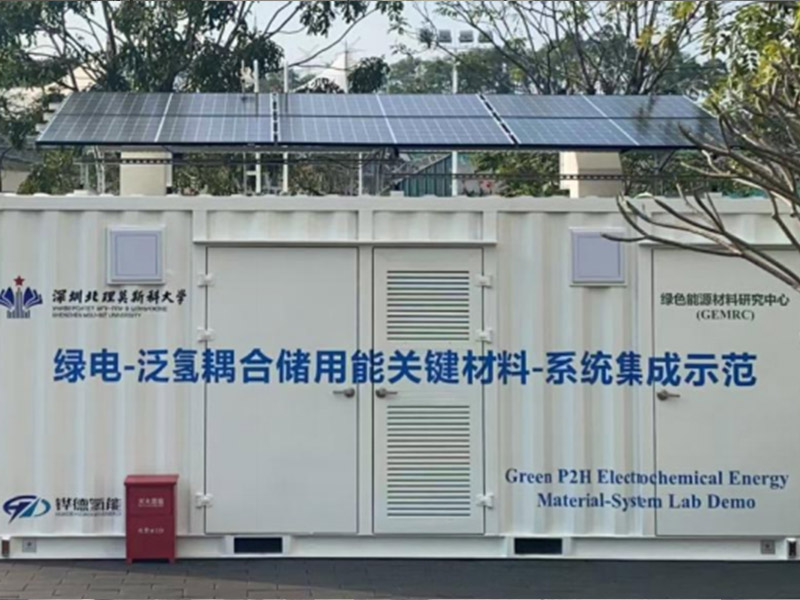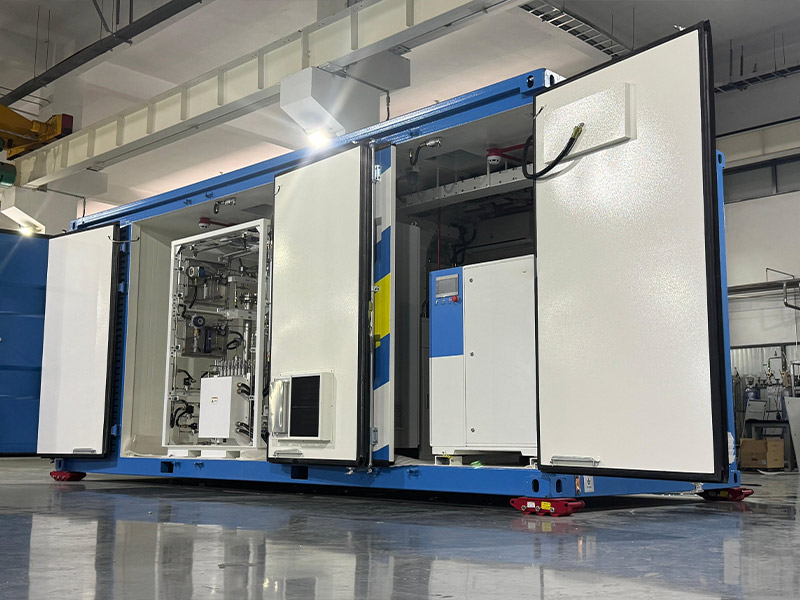Solar energy is rapidly becoming one of the world’s most reliable clean power solutions. However, one common question arises: Can solar hydrogen production work at night? While it’s true that solar panels require sunlight to function, modern systems that combine solar power with hydrogen energy storage make 24/7 clean energy a practical reality.
Keypoints

l Solar hydrogen production requires sunlight – Solar panels generate electricity during the day to power electrolyzers, which split water into hydrogen and oxygen.
l Hydrogen storage enables nighttime energy use – While production stops at night, stored hydrogen can power fuel cells or generators to provide electricity and heat.
l Hydrogen outperforms batteries for long-term storage – Unlike batteries, hydrogen doesn’t degrade over time and can be stored for months, making it ideal for seasonal energy needs.
l Home solar hydrogen systems provide energy independence – These setups allow off-grid living and backup power during outages, ensuring continuous clean energy.
l Scalable and adaptable technology – Modular hydrogen systems can be customized for homes of all sizes, with costs decreasing as the technology advances.
l Real-world adoption is growing – Countries like Japan and Germany already use residential hydrogen systems for reliable, emission-free power.
l Future potential for 24/7 hydrogen production – Emerging technologies, such as hybrid renewable systems, may further enhance nighttime hydrogen availability.
To understand how energy can be used at night, we must first look at how solar hydrogen systems operate during the day. Solar panels generate electricity from sunlight. This electricity either powers your home directly or is fed into a device called an electrolyzer.
The electrolyzer uses electricity to split water into hydrogen and oxygen through a process called electrolysis. The resulting hydrogen is then stored in tanks, ready for later use. This is the foundation of a system that relies on hydrogen energy storage.
At night, solar panels stop producing electricity—but your home doesn’t have to go dark. Stored hydrogen can be used to generate electricity through fuel cells or hydrogen generators. In this way, solar hydrogen production continues to serve your energy needs, even in the absence of sunlight.
Daytime:
l Solar panels generate electricity.
l Excess power drives an electrolyzer to produce hydrogen.
l Hydrogen is stored in secure tanks.
Nighttime:
l Stored hydrogen powers a generator or fuel cell.
l Electricity and heat are supplied to the home.
l The system operates independently of the grid.
With this system, a home solar hydrogen generator becomes the core of continuous, emission-free power.
Hydrogen offers several advantages over traditional battery storage:
l Long-Term Storage: Unlike batteries, hydrogen doesn’t degrade over time and can be stored for months.
l High Energy Density: It packs more energy per unit weight than standard batteries.
l Multi-Purpose: Hydrogen can be used to generate both electricity and heat.
These benefits make hydrogen energy storage an ideal solution for homeowners seeking a long-lasting and versatile clean energy backup.
A home solar hydrogen generator enables households to achieve greater energy independence. Whether you live in an area with frequent blackouts or simply want to reduce your reliance on fossil fuels, this system offers reliable energy that works day and night.
Advantages include:
l Round-the-clock clean energy
l Lower electricity bills
l Independence from the grid
l Reliability during emergencies
Several countries are leading the way in integrating hydrogen into residential use. For example:
Japan: Initiatives like Ene-Farm provide households with hydrogen-based combined heat and power (CHP) systems.
Germany: Off-grid homes utilize solar hydrogen setups for full energy autonomy.
Remote areas: In places where access to the grid is limited or unreliable, solar hydrogen systems ensure continuous electricity.
These examples show how solar hydrogen isn't just a future concept—it’s already improving lives.
Absolutely. With the costs of electrolyzers and hydrogen tanks steadily decreasing, solar hydrogen solutions are becoming more accessible to households of all sizes. Many systems are modular, allowing users to expand based on their energy needs.
Although solar hydrogen production depends on sunlight, the ability to store hydrogen for later use means your energy supply doesn’t stop when the sun sets. Thanks to advanced hydrogen energy storage systems and the reliability of a home solar hydrogen generator, homeowners can enjoy uninterrupted, clean energy 24/7. Whether you’re living off-grid or simply aiming for a more sustainable lifestyle, solar hydrogen technology offers a compelling, eco-friendly way forward.
Yes. Hydrogen produced in sunnier months can be stored for use during winter or cloudy seasons.
Modern systems are equipped with multiple safety mechanisms, including pressure control, leak detection, and auto shutoff systems.
When stored under proper conditions, hydrogen can last indefinitely without degradation.
Yes, home solar hydrogen generators can be tailored to suit homes of all sizes and energy demands.
No, direct solar hydrogen production requires sunlight. However, during the day, excess solar energy can be stored as hydrogen using electrolysis and then used at night.
Hydrogen energy storage involves converting solar energy into hydrogen during the day and storing it for later use. This allows homeowners to access clean energy even when the sun isn’t shining.
A home solar hydrogen generator stores hydrogen produced during the day. At night, the stored hydrogen can be converted back into electricity using a fuel cell to power home appliances.
Solar hydrogen offers long-duration storage, making it more suitable for extended energy needs compared to typical lithium batteries, which may have shorter capacity durations.
Yes. If enough hydrogen is stored during the day, fuel cells can generate enough power to meet a household’s nighttime energy requirements.
While initial setup costs may be higher, the long-term savings on electricity bills and the ability to use stored hydrogen energy at night can make it a cost-effective green solution.


